Leopard gecko health issues can arise due to various factors. These small reptiles commonly face problems like shedding difficulties, digestive issues, and infections.
Providing a proper habitat with appropriate temperature and humidity levels, along with a balanced diet. Preventing such problems and regular observation can ensure the health of these fascinating creatures.
What are some common health issues in leopard geckos? Leopard geckos can face several typical health problems. Shedding difficulties, like incomplete skin shedding, might occur. Gecko might face digestive issues could arise due to improper diet or habitat conditions. Infections, such as mouth or respiratory infections, are also concerns. Maintaining optimal habitat settings, providing a balanced diet, and seeking veterinary care when needed are key to preventing and addressing these problems in leopard geckos.

- Importance Of Understanding Leopard Gecko Health Issues
- Factors Contributing To A Healthy Leopard Gecko: Proper Habitat, Nutrition, And Care
- Shedding Problems: Prevention And Treatment: Providing A Humid Hide, Maintaining Humidity Levels
- Metabolic Bone Disease In Leopard Geckos: Causes, Symptoms, And Treatment
- Respiratory Infections In Leopard Geckos: Signs, Causes, And Treatment
- Digestive Issues: Impaction, Parasitic infections And Overfeeding Obesity: Common Leopard Gecko Diseases
- Parasitic Infections In Leopard Geckos: Types, Symptoms, And Treatment: Parasite Gecko Health Problems
- Recognizing Signs Of Illness In Leopard Geckos And When To Seek Veterinary Care
- Preventing Impaction Through Proper Husbandry And Diet
- How To Maintain A Healthy Environment For Your Leopard Gecko
- Tips For Maintaining The Overall Health Of Your Leopard Gecko
- Regular Veterinary Check-Ups And Monitoring Your Gecko’s Health: Vet
- FAQ About Leopard Gecko Health Issues
- Final Thought
Importance Of Understanding Leopard Gecko Health Issues
Understanding leopard gecko health issues is important for responsible pet gecko ownership. These small reptiles can experience common problems like shedding complications, digestive issues, and infections.
Being aware of these concerns helps in creating a suitable environment with proper temperature, humidity, and a balanced diet. Regular monitoring and seeking veterinary assistance when required ensure that these creatures lead healthy and fulfilling lives as companions.
Common Leopard Gecko Illnesses
Illnesses of leopard geckos encompass shedding problems, egg binding, digestive disorders, and potential infections.
Maintaining the right habitat conditions, offering a balanced diet that geckos eat properly and observing their behavior helps prevent these issues.
Maintaining contact with reptile vets and consulting with them is a key issue for the pet owner.
Leopard Gecko Morphs With Health Issues
These stunning variations also carry potential health considerations. Responsible breeding can help minimize problems associated with certain morphs.
For instance, albino morphs lack melanin, causing sensitivity to light and possible vision issues.
Blizzard morphs, being pale, facing sunburn risks, and potential immune system challenges.
Enigma morphs might exhibit neurological issues affecting movement. Tremper albino leopard gecko morphs often have eye problems, while spider morphs may struggle with balance.
Morphs with extensive white or yellow areas might experience skin issues or troubles.
To make informed choices, research thoroughly and choose reputable breeders who prioritize gecko health.
Maintain proper care to mitigate health concerns, and consult experienced reptile veterinarians when needed.
Factors Contributing To A Healthy Leopard Gecko: Proper Habitat, Nutrition, And Care
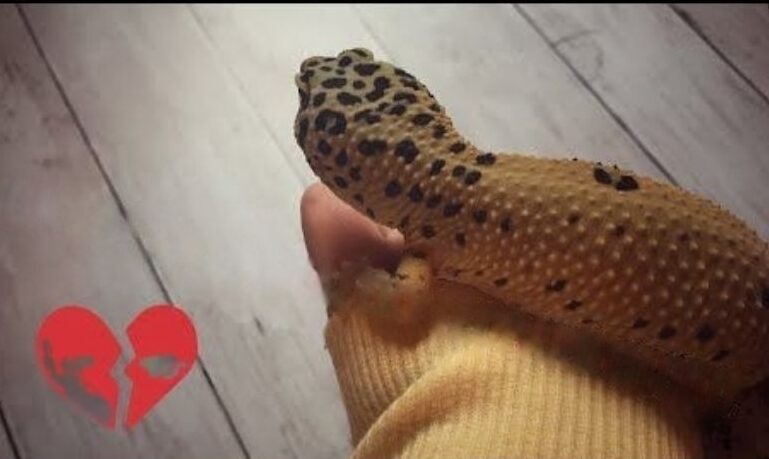
A healthy leopard gecko depends on key factors: a suitable habitat, balanced nutrition, and attentive care. Creating the right environment with proper temperature and humidity ensures their comfort.
Offering a varied diet rich in insects like cricket and vitamins fosters their gro. Regular cleaning and observation prevent health issues.
Interacting minimally and handling gently reduces stress. Prioritizing these aspects, you provide your leopard gecko with the best chance for a happy and healthy life.
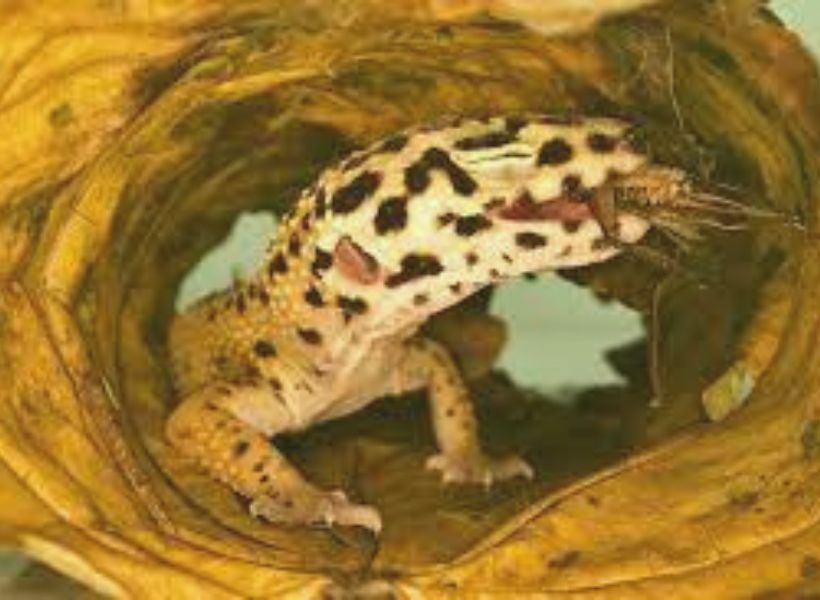
Shedding Problems: Prevention And Treatment: Providing A Humid Hide, Maintaining Humidity Levels
Preventing and treating shedding problems in leopard geckos involves simple steps.
Ensure a humid hide in their enclosure, creating a space where humidity is higher. This aids the shedding process by keeping their skin moist.
Maintaining overall humidity levels in the habitat is also crucial. Regularly check and adjust humidity levels as needed, especially during shedding. These measures ensure your gecko’s successful shedding.
Leopard Gecko Shedding Problems
Leopard gecko shedding problems can be concerning for gecko owners. These issues arise when the gecko struggles to shed its old skin, leading to discomfort and potential health complications.
Maintaining proper humidity levels and providing a humid hide can aid in the shedding process.
If shedding difficulties persist, it’s advisable to seek veterinary assistance. Regular observation and care are essential to ensure your gecko’s skin health and overall wellness.
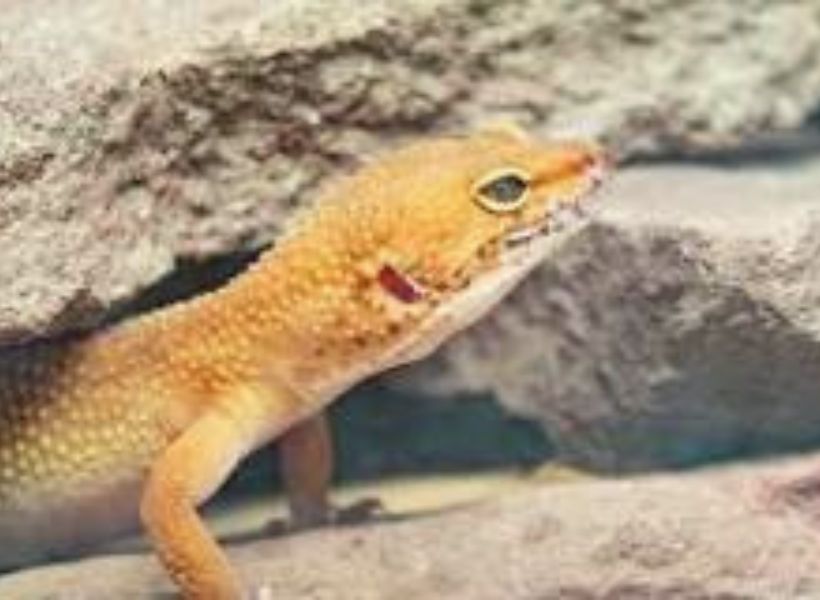
Metabolic Bone Disease In Leopard Geckos: Causes, Symptoms, And Treatment
Metabolic Bone Disease in leopard geckos arises from calcium and vitamin D3 deficiencies. Symptoms like lethargy, tremors, and limb problems.
Metabolic Bone Disease (MBD) is a concern in leopard geckos. Inadequate calcium and vitamin D3 in their diet can lead to weakened bones. Signs like lethargy, tremors, and limb deformities indicate MBD.
Offering a calcium-rich diet, UVB lighting, and proper supplements can prevent and treat MBD. Consulting a vet for guidance ensures your gecko’s bone health.
Prevention And Treatment Options For Metabolic Bone Disease
Ensure a diet rich in calcium and provide UVB lighting to support proper calcium absorption.
Incorporate supplements if necessary. Creating a suitable habitat with proper temperature and humidity levels. Regularly observe your gecko’s behavior for any signs of MBD.
Respiratory Infections In Leopard Geckos: Signs, Causes, And Treatment
Respiratory infections can affect leopard geckos, showing signs like wheezing, nasal discharge, and labored breathing.
These issues often result from poor habitat conditions, like incorrect temperature or humidity levels.
Timely veterinary care is essential for accurate diagnosis and treatment. Ensure a clean and appropriate environment, with proper heating and humidity, to prevent these infections.
Digestive Issues: Impaction, Parasitic infections And Overfeeding Obesity: Common Leopard Gecko Diseases
Leopard geckos can face digestive troubles, including impaction from ingesting indigestible substances.
Parasitic infections can disrupt their digestion, leading to issues like diarrhea and loss of appetite. Overfeeding can also result in obesity and related serious health problems.
Providing clean warm water, and maintaining proper hygiene in their habitat are crucial steps to prevent these digestive issues and ensure your gecko’s health.
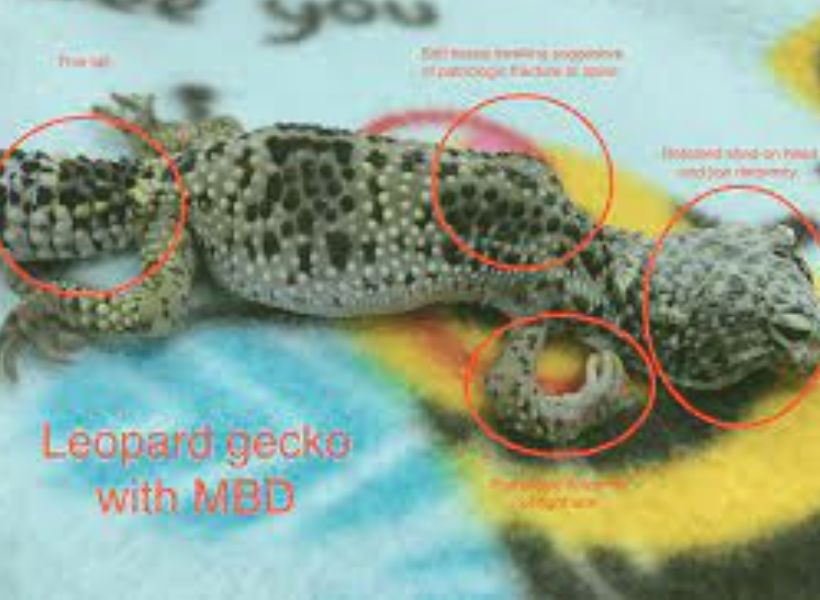
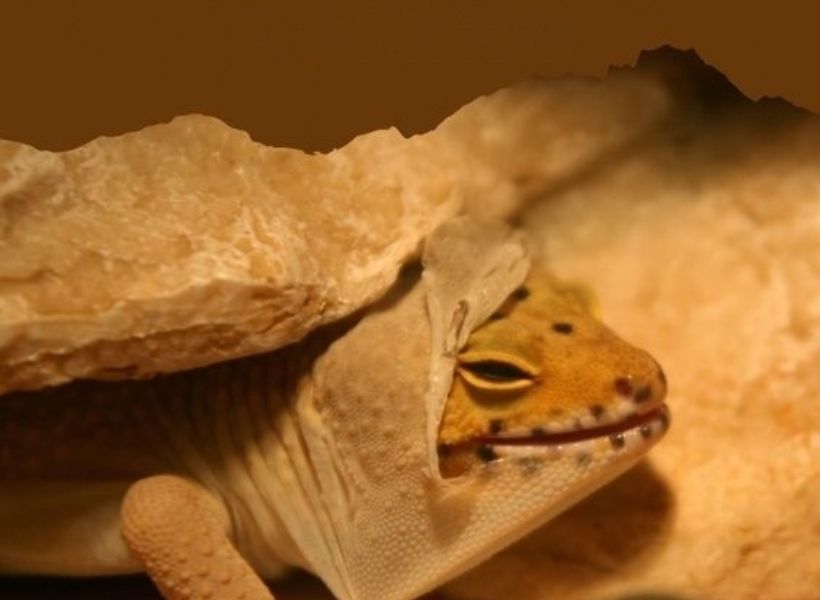
Parasitic Infections In Leopard Geckos: Types, Symptoms, And Treatment | Parasite Gecko Health Problems
Leopard geckos can experience parasitic infections with distinct types and symptoms include. Common parasites include internal worms and external mites.
Signs might include weight loss, lethargy, and changes in appearance. Prompt veterinary attention is necessary for proper diagnosis and treatment.
Regularly cleaning the enclosure, practicing good hygiene, and avoiding contact with infected animals can help prevent these infections. A vet’s guidance ensures your gecko’s health and happiness by addressing and managing these potential issues.
Recognizing Signs Of Illness In Leopard Geckos And When To Seek Veterinary Care
There are some remarkable signs through which you can identify the sickness. When you observe changes in eating habits, lethargy, skin abnormalities, and unusual behaviors.
If you notice any of these signs, consult a reptile-savvy veterinarian immediately. Early intervention can prevent complications and ensure effective treatment.
Your gecko’s health is best safeguarded when you’re attentive to their behavior and seek professional care proactively.
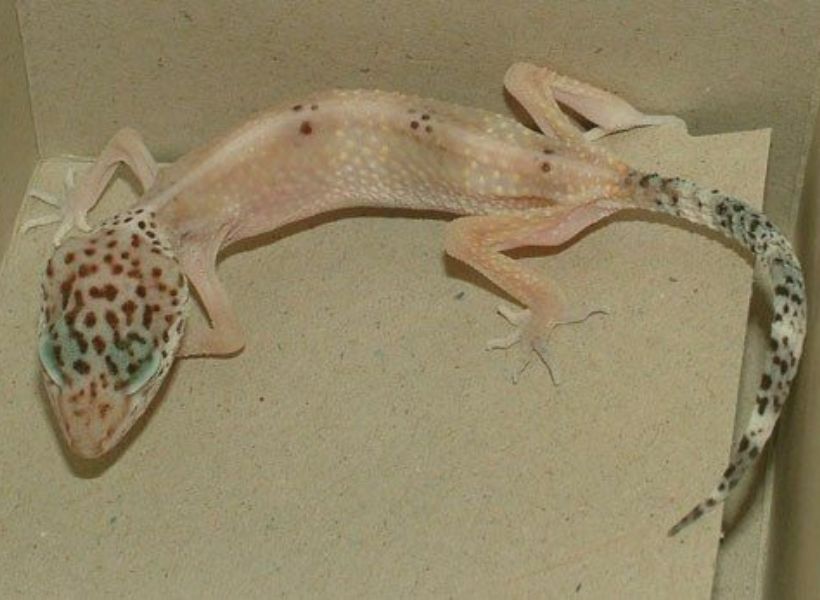
Preventing Impaction Through Proper Husbandry And Diet
Preventing impaction in leopard geckos relies on proper care and diet. Providing a suitable substrate in their enclosure can minimize the risk of ingesting indigestible material.
Feeding them appropriately sized insects and gut-loaded with nutrients ensures smooth digestion. Regularly clean their habitat to remove potential hazards.
Adequate hydration and a balanced diet contribute to their digestive health. Through these practices, you can help prevent impaction and ensure your gecko’s health.
How To Maintain A Healthy Environment For Your Leopard Gecko
Maintaining a healthy environment for your gecko needs a few steps. Provide an enclosure with proper temperature gradients, hiding spots, and a humid hide for shedding. Use a substrate that’s safe and easy to clean.
Offer a varied diet of accordingly sized insects and ensure they have access to clean water. Regularly clean the enclosure to prevent bacteria buildup. Monitoring their behavior and seeking veterinary care if needed ensures your gecko’s health.
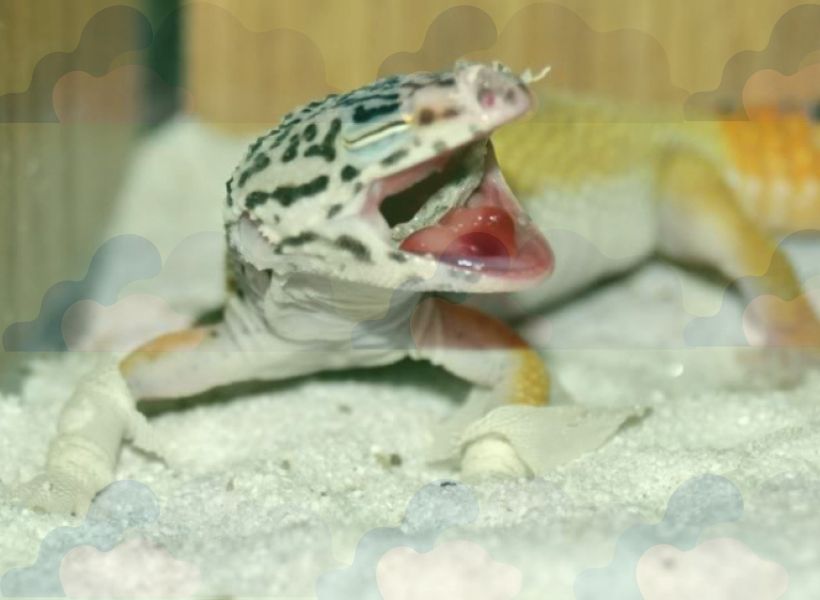
Tips For Maintaining The Overall Health Of Your Leopard Gecko
Create a comfortable habitat with the right temperature, humidity, and hiding spots. Provide a balanced diet of insects and vitamins, adjusting portion sizes as needed.
Regularly clean the enclosure to prevent infections. Watch for any changes in behavior, appetite, or appearance, and seek vet care if concerns arise.
Gentle handling minimizes stress. Following these guidelines, you promote the health of your beloved gecko friend.
Regular Veterinary Check-Ups And Monitoring Your Gecko’s Health: Vet
A reptile-savvy vet can spot early signs of illness. They can provide guidance on proper care, nutrition, and habitat maintenance.
Consistently monitor your sick gecko, gecko’s behavior, appetite, and appearance at home.
Any unusual changes can be an early indicator of health issues. Timely veterinary visits and attentive observation work together to ensure your gecko’s health and catch potential problems before they become severe.
FAQ About Leopard Gecko Health Issues
What Are Common Health Problems In Leopard Geckos?
Quite Common in leopard geckos health problems encompass shedding issues, digestive troubles, and potential infections. Maintaining optimal habitat settings, offering a balanced diet, and seeking prompt veterinary care when needed are vital to their well-being. Regular attention and responsible care can help prevent and address these health concerns effectively.
How Do I Know If My Leopard Gecko Is Unhealthy?
Spotting signs of an unhealthy leopard gecko involves watching for changes in behavior, eating habits, and physical appearance. Lethargy, loss of appetite, and unusual skin conditions are red flags. If you observe these signs, it’s wise to consult a reptile-experienced veterinarian to ensure your gecko’s health and well-being.
What Is The Most Common Cause Of Death For Leopard Geckos?
The most common reason of death for leopard geckos is improper care and habitat conditions. Inadequate temperature, humidity, or nutrition can lead to underlying health issues that become fatal. Providing a suitable environment and attentive care greatly contribute to preventing such unfortunate outcomes and ensuring their longevity.
What Is Toxic To Leopard Geckos?
Several things can be toxic to leopard geckos. Cedar and pine substrates emit harmful fumes. Inappropriate insects treated with pesticides are dangerous. Foods high in oxalates, like spinach, should be avoided. Toxic plants and cleaning products in their environment can also harm them. Ensuring a safe and toxin-free environment is vital for their health.
Final Thought
Taking care of your Leopard gecko health issues involves understanding their unique needs, from creating an appropriate habitat to providing a balanced diet.
Regular observation and prompt attention to any changes in behavior or health are key.
By following these guidelines and seeking professional advice when necessary, you can ensure that your leopard gecko lives a happy, healthy life as a cherished member of your family.

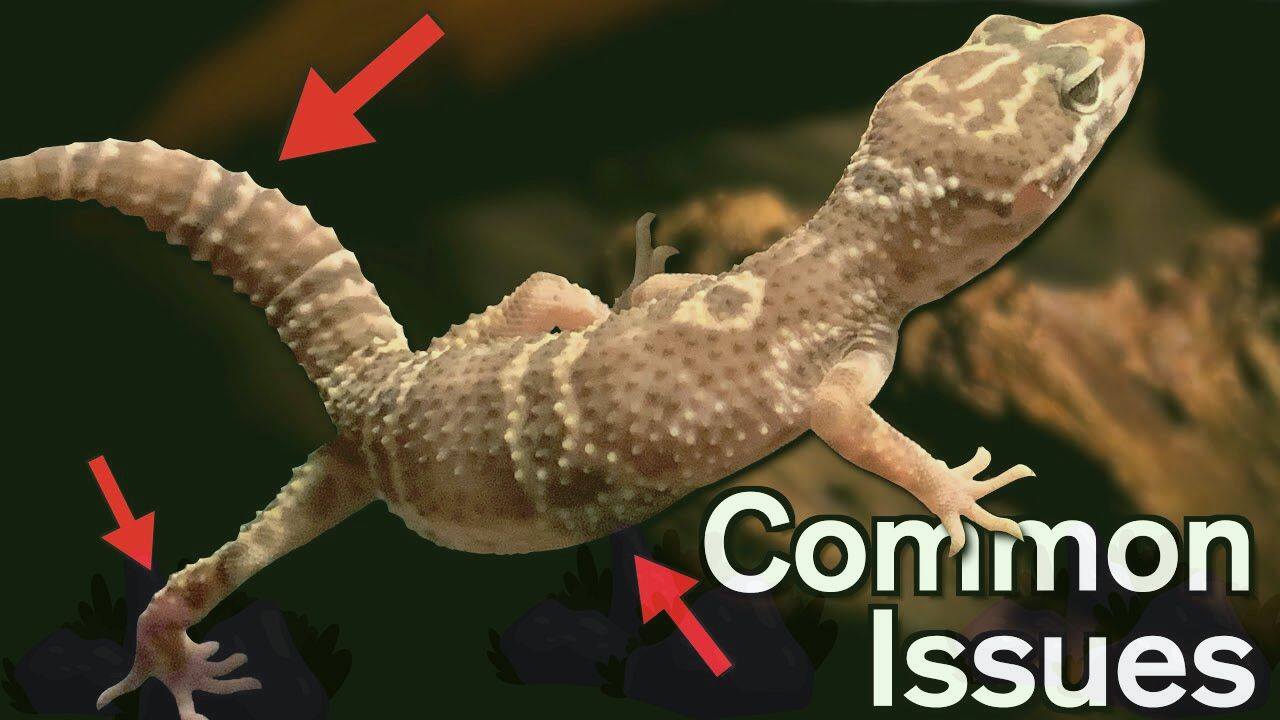

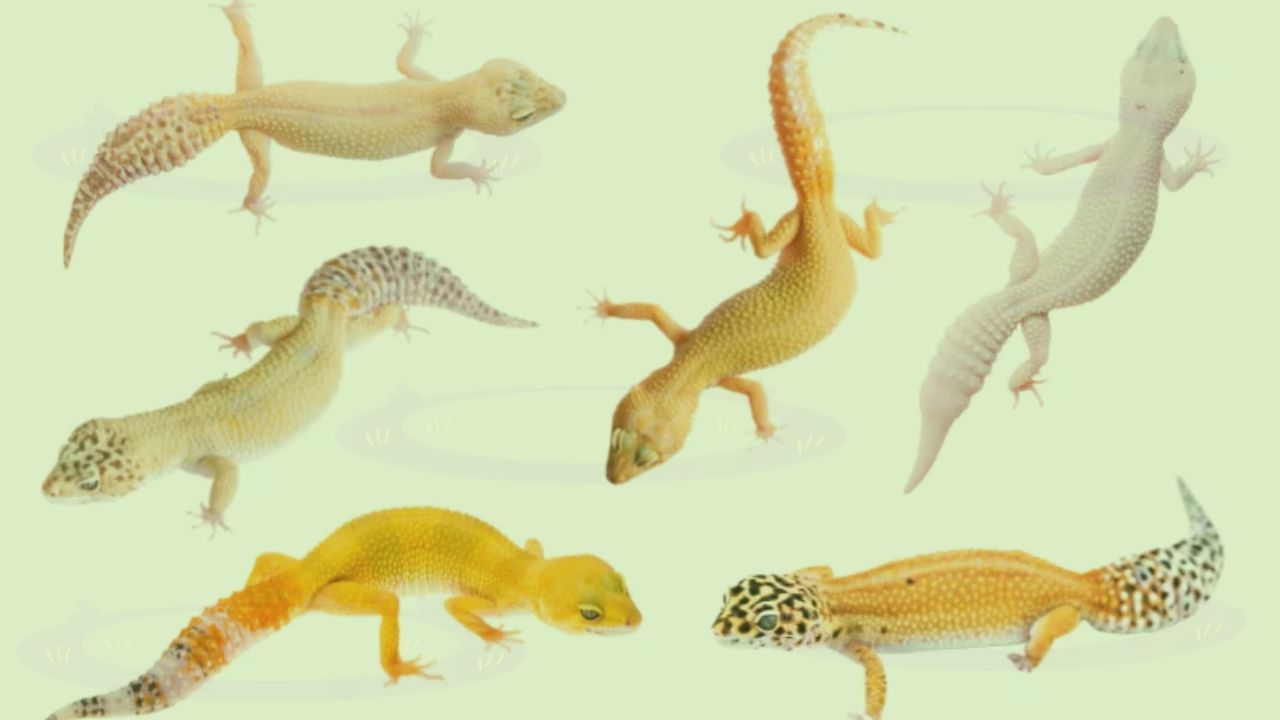
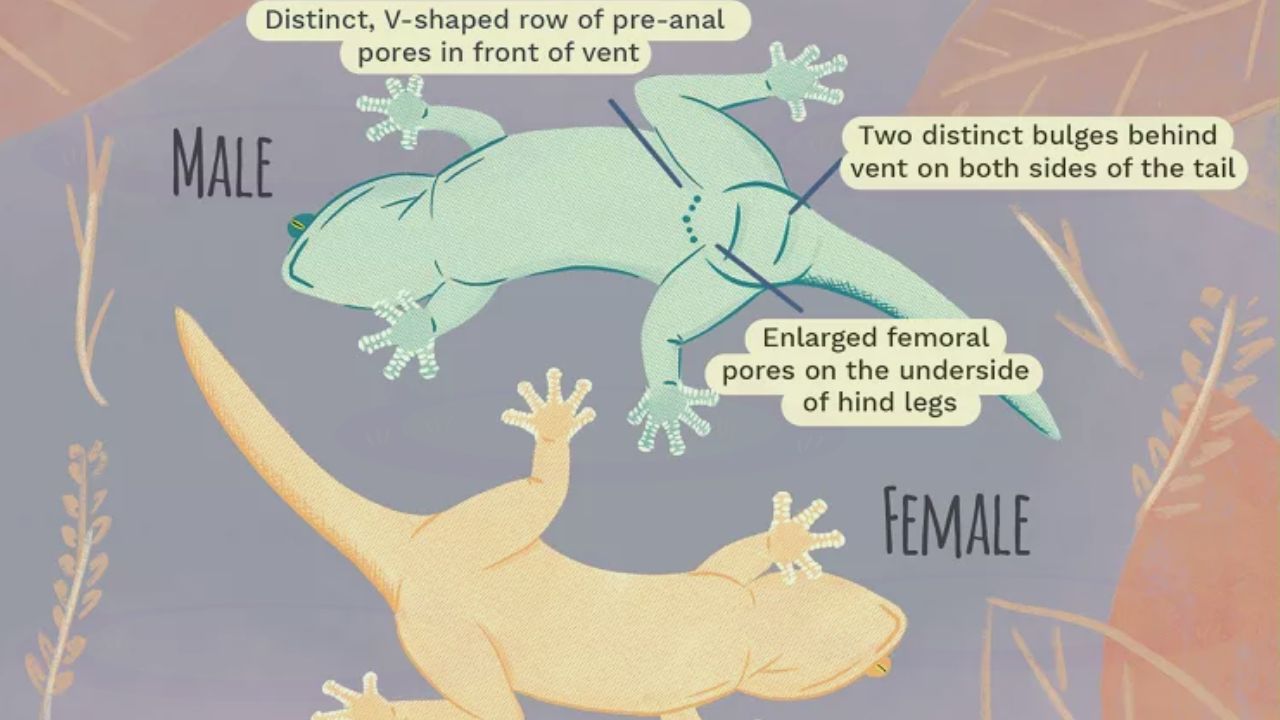
Leave a Reply